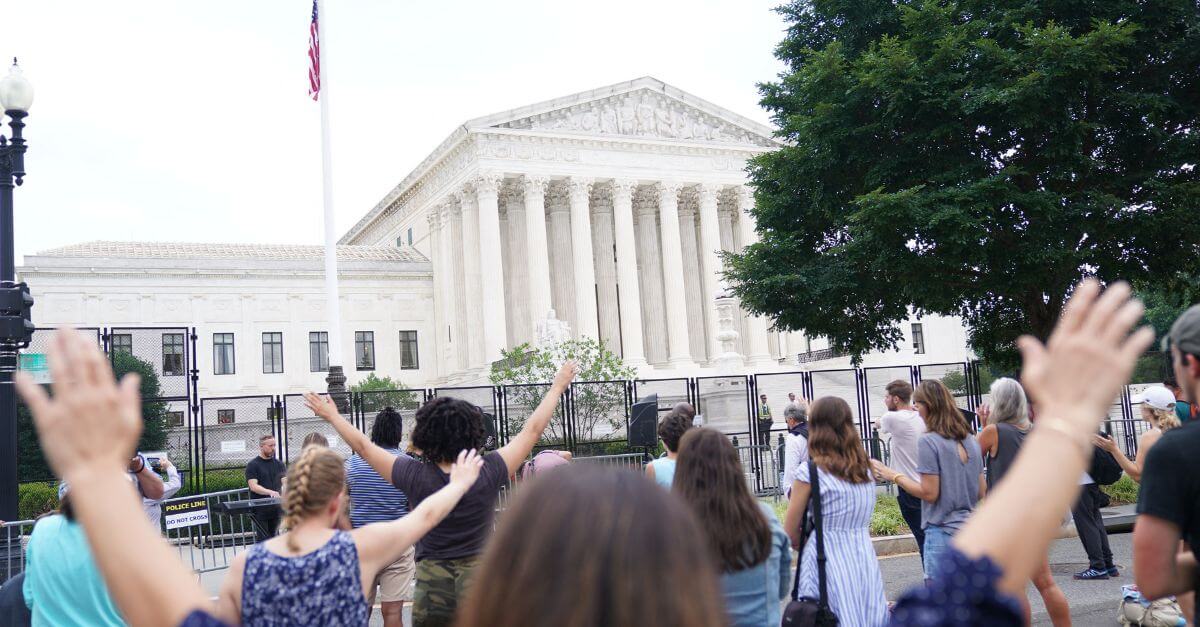Fighting antisemitism is ‘an American issue’ not a Democratic or Republican one, says House Democratic leader
Hakeem Jeffries said his party ‘will do a better job’ clarifying its strong stance against antisemitism

House Minority Leader Hakeem Jeffries (D-NY) on Nov. 15, 2024. Photo by Andrew Harnik/Getty Images
House Minority Leader Hakeem Jeffries said the Democratic Party must communicate better with the American Jewish community in addressing safety concerns amid a rise in antisemitism following Hamas’ Oct. 7 attack on Israel.
“We all have to do a better job of making it clear that crushing antisemitism and standing up for the Jewish community shouldn’t be a partisan issue,” Jeffries said in a conversation with MSNBC host Ari Melber at a book signing event held at the Temple Emanu-El Streicker Center in New York City on Thursday night.
Jeffries, who was elected this week for the second time to serve as the House Democratic leader, responded to the perception that Republicans are more concerned with Jewish issues and Israel than Democrats are. Post-election polls showed growing support for President-elect Donald Trump and Republican candidates in New York’s key swing districts with sizable Jewish populations. Shabbos Kestenbaum, a Harvard graduate and vocal critic of universities for failing to protect Jewish students from antisemitism, said he shifted his support to the GOP because Democrats have not taken the issue seriously.
Senate Majority Leader Chuck Schumer also faced an aggressive and expensive pressure campaign for refusing to bring for a vote legislation that aims to crack down on anti-Zionism on college campuses.
Countering antisemitism “can’t be viewed as a Democratic issue or Republican issue,” Jeffries said, adding that the concerns are “understandable” in the aftermath of Oct. 7 and the subsequent spike in antisemitic incidents.
“Crushing antisemitism in America is an American issue that we all have a responsibility to undertake,” he said. “And … to the extent that there’s a concern that that’s not the case with the Democratic Party, then we will do a better job of making that clear.”
What Jeffries and the Democratic Party is doing on antisemitism
Jeffries has established himself as a strong ally of the American Jewish community since his election in 2012.
He has visited Israel multiple times and has a longstanding relationship with pro-Israel groups like the American Israel Public Affairs Committee and the Orthodox community, a more reliable Republican electorate.
The Democratic leader mentioned that he is honored to represent a diverse district in Brooklyn, with a broad spectrum of Jewish denominations and ethnic communities. In a nod to his memorable 2023 floor speech upon becoming minority leader, where he affirmed American values alphabetically, Jeffries described his district as a “gorgeous mosaic” of Jewish traditions and identities. (The new book Jeffries is promoting is titled The ABCs of Democracy.)
On Wednesday, the House voted overwhelmingly – 388-21 – in favor of a bipartisan resolution that endorsed the State Department’s global guidelines for combating antisemitism. The measure – introduced by retiring congresswoman Kathy Manning, a Jewish Democrat from North Carolina, and Rep Chris Smith, a Republican from New Jersey – faced opposition primarily from 18 far-right Republican members. Only three progressive Democrats voted against it.
Earlier this week, Schumer announced that he would advance a contentious bill – the Antisemitism Awareness Act – aimed at addressing rising antisemitism on colleges and universities as part of the National Defense Authorization Act, which must pass by year’s end.
“We don’t want to politicize that issue,” Jeffries said at Thursday’s event. “We should lean into it aggressively and make sure we stop all forms of hatred in this country, and we certainly will do that on behalf of the Jewish community in the United States of America.”
















